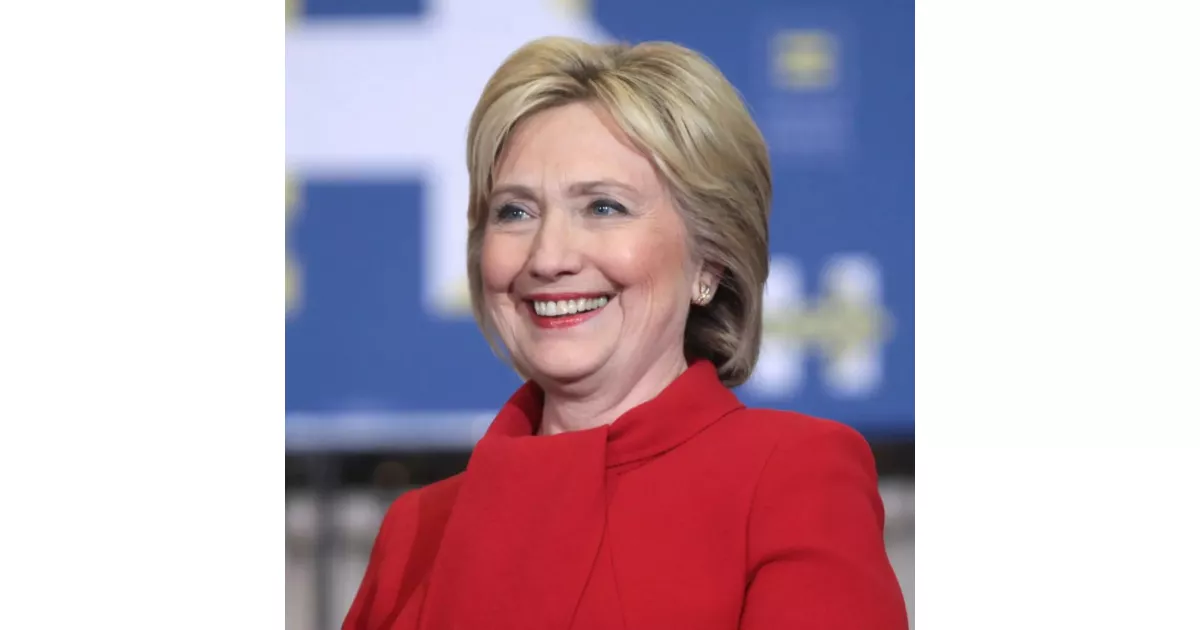Resilience and perseverance in the journey of Hillary Clinton. A timeline of obstacles and growth.
Hillary Diane Rodham Clinton is a prominent American politician, lawyer, and diplomat. She served as the 67th United States Secretary of State under President Barack Obama, a U.S. Senator for New York, and First Lady during Bill Clinton's presidency. As a member of the Democratic Party, Clinton made history as the first woman to secure a major party's presidential nomination in 2016 and the only woman to win the popular vote in a U.S. presidential election. Despite her popular vote victory, she lost the Electoral College to Donald Trump. Notably, she remains the only First Lady to have pursued elected office.
1961: Letter to NASA
Around 1961, inspired by U.S. efforts during the Space Race, Hillary Rodham sent a letter to NASA asking what she could do to become an astronaut, only to be informed that women were not being accepted into the program.
January 1993: Named chair of Task Force on National Health Care Reform
In January 1993, President Clinton named Hillary to chair a task force on National Health Care Reform, leading to the Clinton health care plan.
September 1994: The proposal was abandoned
In September 1994, Hillary Clinton's National Health Care Reform proposal was abandoned after failing to gather enough support for a floor vote in either the House or the Senate.
1994: Healthcare Plan Fails to Gain Approval
In 1994, Hillary Clinton's health care plan failed to gain approval from Congress.
January 26, 1996: Testimony before federal grand jury
On January 26, 1996, Hillary Clinton became the first spouse of a U.S. president to be subpoenaed to testify before a federal grand jury as part of the Whitewater controversy investigation.
June 1996: Discovery of improper White House access to FBI background reports
In June 1996, the "Filegate" scandal emerged, involving improper White House access to hundreds of FBI background reports on former Republican White House employees. Accusations were made that Hillary Clinton had requested these files, but a final report later found no substantial evidence of her involvement or misconduct.
1998: Lewinsky scandal and impeachment of President Clinton
In 1998, investigations revealed President Bill Clinton's extramarital affair with Monica Lewinsky, a White House intern. Hillary Clinton initially dismissed the allegations as a "vast right-wing conspiracy" but later acknowledged she was misled. The events surrounding the Lewinsky scandal led to President Clinton's impeachment by the House of Representatives, though he was later acquitted by the Senate.
2000: Final report on Filegate issued
In 2000, the final Independent Counsel report on the Filegate controversy found no substantial or credible evidence that Hillary Clinton had any role or showed any misconduct in the matter.
2000: Final Whitewater report issued
In 2000, the final report on the Whitewater controversy was issued, stating that there was insufficient evidence that either Bill or Hillary Clinton had engaged in criminal wrongdoing.
March 2007: Call for Gonzales's resignation
In March 2007, Hillary Clinton called for Attorney General Alberto Gonzales to resign in response to the dismissal of U.S. attorneys controversy.
2008: Presidential bid considerations
In 2008, there were concerns about Hillary Clinton's spending during her Senate reelection campaign. Some supporters worried she did not leave more funds for a potential presidential bid.
April 2011: Deliberations over raid into Pakistan against Osama bin Laden
In April 2011, Hillary Clinton was among President Obama's advisors who argued in favor of ordering U.S. special forces to conduct a raid into Pakistan against Osama bin Laden, saying the importance of getting bin Laden outweighed the risks to the U.S. relationship with Pakistan.
August 2011: Syrian Civil War
In August 2011, during the Syrian Civil War, Clinton and the Obama administration called for Syrian president Bashar al-Assad to resign from the presidency as government violence allegedly rose. The administration joined several countries in delivering non-lethal assistance to rebels and humanitarian groups in Syria.
2011: Response to Egyptian Protests
In 2011, the Egyptian protests posed a challenging foreign policy crisis. Hillary Clinton's public response evolved from assessing the Mubarak government as "stable" to condemning violence against protesters.
September 11, 2012: Attack on U.S. Diplomatic Mission in Benghazi
On September 11, 2012, the U.S. diplomatic mission in Benghazi, Libya, was attacked, resulting in the deaths of U.S. Ambassador J. Christopher Stevens and three other Americans. The attack and subsequent explanations became politically controversial.
December 2012: Hospitalization for Blood Clot
In December 2012, Hillary Clinton was hospitalized for a few days for treatment of a blood clot in her right transverse venous sinus. This was discovered during a follow-up examination for a concussion she sustained from fainting due to dehydration from a viral intestinal ailment.
2012: Plan to Arm Syrian Rebels
During mid-2012, Hillary Clinton and CIA Director David Petraeus formed a plan to strengthen the Syrian opposition by arming and training vetted groups of Syrian rebels. The proposal was rejected by White House officials who were reluctant to become entangled in the conflict.
2012: Benghazi Attack
In 2012, Hillary Clinton was harshly criticized by Republicans for the failure to prevent or adequately respond to the Benghazi attack.
2012: Decline in Bilateral Relations
In 2012, bilateral relations between the U.S. and Russia declined considerably after Dmitry Medvedev's presidency ended and Vladimir Putin returned to the Russian presidency.
2012: Attack on U.S. Diplomatic Mission in Benghazi
On September 11, 2012, the U.S. diplomatic mission in Benghazi, Libya, was attacked, resulting in the deaths of U.S. Ambassador J. Christopher Stevens and three other Americans. The attack and subsequent explanations became politically controversial.
January 23, 2013: Testimony Regarding Benghazi Attack
On January 23, 2013, Hillary Clinton testified to congressional foreign affairs committees regarding the Benghazi attack. She defended her actions but said she had no direct role in specific discussions regarding consulate security.
May 2014: Creation of House Select Committee on Benghazi
In May 2014, the Republican-led House Select Committee on Benghazi was created to investigate the 2012 attack. The committee was criticized as partisan.
July 15, 2015: Inspector General's Report on Emails
On July 15, 2015, the inspector generals of the State Department and the intelligence community stated that their review of Hillary Clinton's emails found information that was classified when sent and should not have been transmitted via an unclassified system.
October 22, 2015: Testimony Before Benghazi Committee
On October 22, 2015, Hillary Clinton testified before the House Select Committee on Benghazi. She was widely seen as emerging largely unscathed from the hearing.
February 4, 2016: Email Controversy Remarks During Debate
During a Democratic debate with Bernie Sanders on February 4, 2016, Hillary Clinton said, "I never sent or received any classified material—they are retroactively classifying it," regarding the email controversy.
February 2016: Retroactive Classification of Emails
In February 2016, The New York Times reported that nearly 2,100 emails stored on Hillary Clinton's server were retroactively marked classified by the State Department. Additionally, the intelligence community's inspector general wrote Congress to say that some of the emails "contained classified State Department information when originated".
May 2016: State Department Criticizes Email Use
In May 2016, the inspector general of the State Department criticized Hillary Clinton's use of a private email server while secretary of state, stating that she had not requested permission for this and would not have received it if she had asked.
July 2, 2016: Statement on Classified Material
On July 2, 2016, Hillary Clinton stated: "Let me repeat what I have repeated for many months now, I never received nor sent any material that was marked classified."
July 5, 2016: FBI Concludes Investigation
On July 5, 2016, the FBI concluded its investigation into Hillary Clinton's use of a private email server.
July 6, 2016: Email Probe Closed Without Charges
On July 6, 2016, U.S. Attorney General Loretta Lynch confirmed that the probe into Hillary Clinton's use of private email servers would be closed without criminal charges.
October 28, 2016: FBI Reopens Investigation into Clinton Emails
On October 28, 2016, just two weeks before the election, James Comey notified Congress that the FBI had begun looking into newly discovered Clinton emails.
November 8, 2016: Presidential Election Defeat
On November 8, 2016, Hillary Clinton was defeated by Donald Trump in the presidential election. She conceded the election to Trump after he secured 279 electoral college votes.
December 19, 2016: Faithless Electors
On December 19, 2016, when electors formally voted, Hillary Clinton lost five of her initial 232 votes due to faithless electors.
2016: 2016 Presidential Campaign
In 2016, Hillary Clinton ran for president focusing on: raising middle class incomes, establishing universal preschool, making college more affordable and improving the Affordable Care Act. She faced an unexpectedly strong challenge from democratic socialist Senator Bernie Sanders of Vermont.
2016: Presidential Run and Email Controversy
In 2016, during her second presidential run, Hillary Clinton's use of a private email server as Secretary of State was the subject of intense scrutiny.
2016: Email Server Controversy
Throughout her time as secretary of state, Hillary Clinton used her private email server for official business, which led to controversy. It was argued that this violated State Department protocols and federal laws, especially during her 2016 presidential election campaign.
Mentioned in this timeline

Donald John Trump is an American politician media personality and...

Bernie Sanders is a prominent American politician currently serving as...

Vladimir Vladimirovich Putin is a Russian politician and former intelligence...

Barack Obama the th U S President - was the...

Bill Clinton served as the nd U S President from...

Martin Luther King Jr was a pivotal leader in the...
Trending
57 minutes ago Ameren Prices $400M Senior Notes, $900M Bonds for Grid Investment, Reshaping Debt
2 hours ago Pokemon Celebrates 30 Years: A Cultural Phenomenon with Multimillion-Dollar Cards

2 hours ago Daylight Saving Time 2026: Prepare to set your clocks forward and lose sleep.

2 hours ago Indiana Investigates CenterPoint Energy Amid Bill Concerns and New Utility Law.

2 hours ago Galatasaray's Champions League opponent revealed; Liverpool legend comments on Juventus match; Real Madrid faces Man City.

4 hours ago Google Maps to fully function in South Korea after data agreement.
Popular

Jesse Jackson is an American civil rights activist politician and...

Barack Obama the th U S President - was the...

Susan Rice is an American diplomat and public official prominent...

XXXTentacion born Jahseh Dwayne Ricardo Onfroy was a controversial yet...

Michael Joseph Jackson the King of Pop was a highly...

Kashyap Pramod Patel is an American lawyer who became the...
